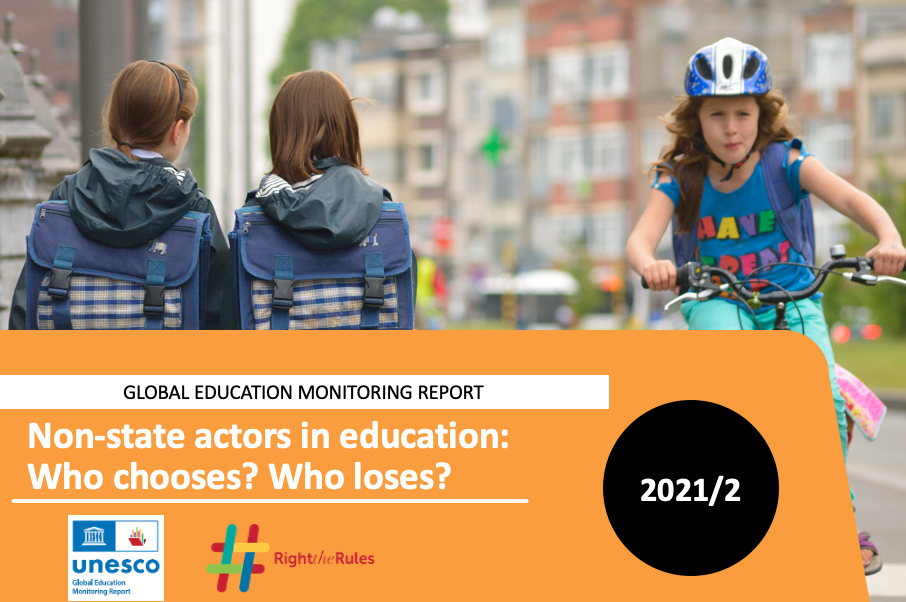UNESCO’s Global Education Monitoring Report 2021/22: A call for reducing inequalities of private education

The Global Education Monitoring Report published its fifth annual report with the support of UNESCO. The theme of the 2021/22 Global Education Monitoring (GEM) report is “Non-state actors in education”. The report warns of the high costs of private education and weak state regulation on growing inequality and exclusion. UNESCO calls for better oversight of private education to reduce inequalities.
The report analyzed non-state actors across all education systems, ranging from schools run by faith-based organizations to all those involved in the provision of services to the education sector. These schools in many countries operate without any oversight. As a result, households in the least developed countries spend a disproportionate amount of their income on education. Simultaneously, there are hidden costs associated with public education in low-income countries leading families to borrow to pay for education.
It emphasized that the role of non-state actors extends to interventions at different education levels, and spheres. Along with a review of progress towards SDG 4, including new evidence on the impact of the COVID-19 pandemic, the 2021/22 GEM Report urged governments to view all institutions, teachers, and students as part of one single system. The report’s rallying call – Who chooses? Who loses? – invites questioning relationships with non-state actors in terms of fundamental choices such as between equity and freedom of choice; and between immediate commitments under SDG 4 and those to be progressively realized.
UNESCO presented five recommendations to place equity at the heart of countries’ actions.
- Increase efforts to guarantee free, publicly funded access to a year of pre-primary and 12 years of primary and secondary education for all children and young people.
- Establish quality standards that apply to all state and non-state education institutions.
- Strengthen government capacity to monitor and enforce regulations.
- Encourage innovation for the common good and bring together all actors who develop them.
- Protect education from narrow vested interests through maintaining the transparency and integrity of public education.
The full report is available on the website of Unesco Global Education Monitoring Report.
The Global Education Monitoring Report is an independent annual publication. It is funded by a group of governments, multilateral agencies, and private foundations and facilitated and supported by UNESCO. The mandate of the GEM Report is to be ‘the mechanism for monitoring and reporting on SDG 4 and on education in the other SDGs’.

